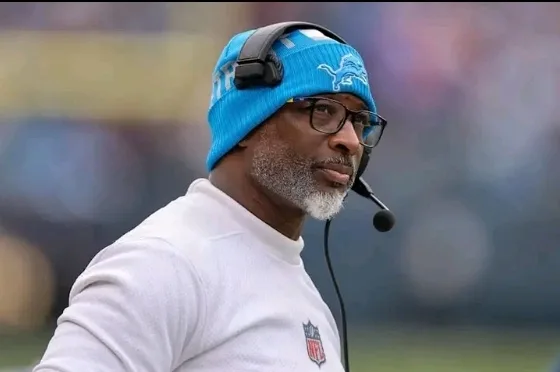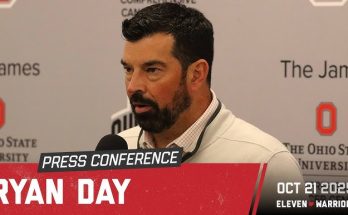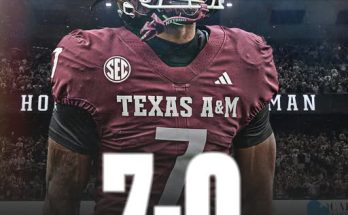In a league that prides itself on being a beacon of opportunity and inclusivity, Dallas Cowboys owner Jerry Jones is at the center of a storm. His recent decision to pass over Aaron Glenn, an African American coach with an impressive track record, for the team’s head coaching position has reignited debates about racial equity in the NFL. The decision comes at a time when the league’s commitment to diversity is under scrutiny, with initiatives designed to promote inclusivity seemingly falling short of tangible results.
The NFL’s Diversity Imperative
The NFL, one of the most visible sports leagues globally, has been under pressure for years to address racial inequities within its ranks. Despite its predominantly Black player base—nearly 70% as of recent reports—the number of African American head coaches remains disproportionately low. To combat this, the league has implemented measures such as the Rooney Rule, requiring teams to interview minority candidates for head coaching and senior football operation positions. However, critics argue that such policies often amount to little more than token gestures.
Aaron Glenn’s case epitomizes this frustration. The defensive coordinator for the Detroit Lions, Glenn has been widely praised for his football acumen and leadership qualities. His work in turning around the Lions’ defense from one of the league’s worst to a respectable unit has earned him respect among peers and players alike. Yet, when the Cowboys’ head coaching position opened, Jerry Jones opted for another candidate, bypassing Glenn despite his qualifications.
Aaron Glenn: A Candidate Worthy of Consideration
Aaron Glenn is not just a promising coach; he is a seasoned football mind with years of experience both on the field and the sidelines. A former NFL player himself, Glenn’s journey through the league includes stints as a standout cornerback and later as a coach known for developing talent and fostering team cohesion.
As the defensive coordinator for the Detroit Lions, Glenn inherited a defense in shambles. In just two seasons, he transformed it into a competitive unit, showcasing his ability to innovate and inspire. Players under his guidance have spoken highly of his leadership, citing his ability to connect on a personal level while maintaining high professional standards. Given his resume, Glenn’s candidacy for the Cowboys’ head coaching job seemed not only logical but overdue.
Jerry Jones’ Decision: A Missed Opportunity
Jerry Jones, the outspoken owner of the Dallas Cowboys, is no stranger to controversy. His hands-on approach to team management and reluctance to relinquish control have long been hallmarks of his tenure. Yet, his decision to overlook Glenn in favor of a different candidate has drawn widespread criticism.
Jones’ rationale for the decision remains unclear. Was it a matter of preference for a candidate with a specific skill set? Or does it reflect a deeper systemic issue within the Cowboys organization? Whatever the reason, the optics of bypassing a qualified African American coach in favor of another candidate do little to enhance the team’s or the league’s image.
The Broader Context of Racial Inequality in the NFL
Jones’ decision must be viewed within the broader context of the NFL’s ongoing struggles with diversity. While the league has made progress in some areas, the upper echelons of coaching and management remain predominantly white. This disparity has persisted despite initiatives like the Rooney Rule and the league’s public commitments to fostering a more inclusive environment.
Critics argue that these efforts often lack enforcement and accountability. Teams may interview minority candidates to satisfy the Rooney Rule’s requirements but fail to seriously consider them for leadership roles. This “check-the-box” mentality undermines the spirit of the initiative, leaving qualified candidates like Aaron Glenn on the outside looking in.
Community Reactions: From Fans to Advocacy Groups
The backlash against Jones’ decision has been swift and vocal. Advocacy groups, players, and fans have taken to social media and public forums to express their disappointment. Many view the decision as a setback for diversity and inclusion in the league.
“Aaron Glenn has done everything right. He’s paid his dues, shown his capabilities, and earned his shot,” said one prominent NFL analyst. “To see him overlooked again is disheartening, not just for him but for every young coach of color hoping to break through.”
Players, too, have voiced their support for Glenn. Many see his story as emblematic of the struggles faced by minority coaches in a league that often touts its commitment to equality but falls short in practice.
The Role of Ownership in Promoting Diversity
Ownership plays a crucial role in shaping the culture of NFL teams. Owners like Jerry Jones wield immense power, not just in hiring decisions but in setting the tone for their organizations. By choosing to pass over Glenn, Jones missed an opportunity to send a powerful message about the Cowboys’ commitment to diversity.
Historically, ownership in the NFL has been one of the least diverse aspects of the league. The lack of minority representation among team owners further exacerbates the challenges faced by African American coaches and executives. Without a seat at the table, it becomes difficult to influence decisions that impact diversity at all levels of the organization.
Moving Forward: What Needs to Change?
The controversy surrounding Jerry Jones and Aaron Glenn highlights the need for more robust mechanisms to ensure equity in NFL hiring practices. While the Rooney Rule was a step in the right direction, it is clear that more needs to be done to address systemic biases.
One potential solution is increasing transparency in the hiring process. Teams should be required to disclose not only the candidates they interview but also the criteria used to evaluate them. Such transparency would help hold organizations accountable and ensure that qualified minority candidates receive genuine consideration.
Another avenue is the establishment of mentorship and development programs specifically designed for minority coaches. By creating pathways for advancement and providing support systems, the league can help level the playing field and create more opportunities for deserving candidates like Aaron Glenn.
A Call to Action for the NFL
The NFL must also take a more active role in promoting diversity at the ownership level. Encouraging minority investment in teams and creating incentives for inclusive hiring practices could go a long way toward addressing the league’s diversity problem.
Furthermore, the league should consider revisiting its penalties for teams that fail to comply with diversity initiatives. Without meaningful consequences, there is little incentive for teams to move beyond surface-level commitments.



